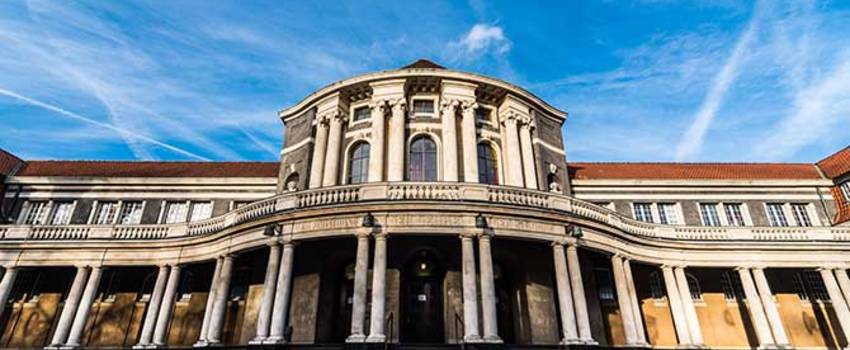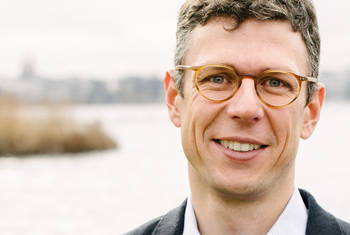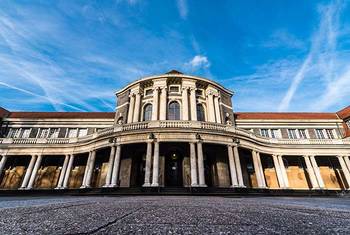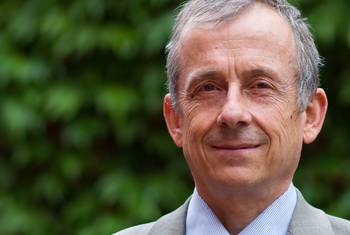Torsten Heinemann How Does DNA Testing Affect Family Reunifications in the Immigration Process?
Torsten Heinemann is Assistant Professor of Sociology at the University of Hamburg, where his particular focus lies on questions of Social Problems and Social Control. In 2015, he was appointed Marie Curie Fellow of the University of Berkeley. Previously, he held the position of Senior Research Fellow at the Humboldt University Berlin. His PhD was funded by the German National Academic Foundation and he was also Visiting Scholar at Columbia University and New York University, as well as Scholar in Residence at the Brocher Foundation, Geneva. His research interests include questions on the societal implications of medical, genetic and neuroscientific research.
Area of Research
Sociology of Science and Technology, Medical Sociology, Cultural Sociology
since 2015
Marie Curie Fellow
University of California, Berkeley
Institute for the Study of Societal Issues
since 2014
Assistant Professor in Sociology
University of Hamburg (Universität Hamburg) (more details)
Institute of Sociology
2014
Senior Research Fellow
Humboldt University of Berlin (Humboldt-Universität zu Berlin)
Programme in Science and Technology Studies
2013-2014
Lecturer
Humboldt University of Berlin (Humboldt-Universität zu Berlin)
Programme in Science Studies
2010-2013
Postdoctoral Research Fellow and Principal Investigator
Goethe University of Frankfurt (Goethe-Universität Frankfurt am Main)
Biotechnology, Nature, and Society Research Group
2010
PhD in Philosophy
Goethe University of Frankfurt (Goethe-Universität Frankfurt am Main)
Department of Sociology
2005
M.A. in Sociology
Goethe University of Frankfurt (Goethe-Universität Frankfurt am Main)
2003
B.A. in Sociology
Goethe University of Frankfurt (Goethe-Universität Frankfurt am Main)
- BioSocieties
- British Journal of Sociology
- Forensic Science International Genetics
- Frontiers in Human Neuroscience
- Health Sociology Review
- International Review of Social Psychology
- Kriminologisches Journal
- Nature and Culture
- New Genetics and Society
- Sage Open
- Science & Technologie Studies
- Science Technology & Human Values
- Sociological Theory
- American Sociological Association (ASA)
- British Sociological Association (BSA)
- European Association for the Study of Science and Technology (EASST)
- European Network for the Social Studies of Forensics (EUnetSSF)
- European Neuroscience & Society Network (ENSN)
- German Sociological Association (GSA)
- Hamburg Centre for Bio-Governance
- Society for Social Studies of Science (4S)
Prizes
- Volkswagen Foundation, Shortlisted for Opus Primum, Award for the Best German Book Publication of an Early Career Researcher (2012)
- Brocher Foundation (Geneva, Switzerland), Research Grant (2012)
- Goethe University, Award for Promoting Early Career Scientists’ Results for Research Excellence. (2011)
- Frankfurt Graduate School for the Humanities and Social Sciences, Travel Award (2009)
- German National Academic Foundation, Travel Award (2007)
- German National Academic Foundation, PhD Scholarship (2007-2010)
Fellowships
- Fritz Thyssen Foundation, Research Fellowship (2013)
- German Research Foundation, Project From Polygraph to Brain Scan: Appeal and Socio-Technical Reconfiguration of Lie Detection, # HE 6448/5-1 (2016)
- Association of North German Universities, Seed funding for the the initiation, consolidation and expansion of research cooperations (2016)
- European Union, Marie Curie International Outgoing Fellowship, # 625814 (2013)
- German Research Foundation, Publication Grant for the Book Populäre Wissenschaft. Hirnforschung zwischen Labor und Talkshow # HE 6448/1-1 (2012)
- German Federal Ministry for Education and Research, External Cooperation Partner in the Project Biomedical Enhancement in Sport (2012)
- German Federal Ministry for Education and Research, Contributor to International Project Proposal DNA and Immigration: Social, Political, and Ethical Implications of DNA Analysis for Family Reunification # 01GP0903 (2010 - 2013)
 © Merlin Senger
© Merlin Senger

University of Hamburg (Universität Hamburg)
Hamburg, GermanyUniversität Hamburg is the largest institution for research and education in the north of Germany. As one of the country's largest universities, we offer a diverse course spectrum and excellent research opportunities. The University boasts numerous interdisciplinary projects in a broad range of subjects and an extensive partner network with leading institutions on a regional, national and international scale. Universität Hamburg offers approximately 170 degree programs in the following eight faculties: Faculty of Law; Faculty of Business, Economics and Social Sciences; Faculty of Medicine; Faculty of Education; Faculty of Humanities; Faculty of Mathematics, Informatics and Natural Sciences; Faculty of Psychology and Human Movement; Faculty of Business Administration (Hamburg Business School). The University was founded in 1919 by local citizens. Important founding figures include Senator Werner von Melle and the merchant Edmund Siemers. (Source: University of Hamburg)
Map
In recent years DNA testing has increasingly been used by immigration authorities to facilitate family reunifications and to verify the family relations of applicants. This has affected immigration procedures and the understanding of the concept of family. As TORSTEN HEINEMANN explains in this video, the researchers investigated how DNA testing is introduced into the immigration process and the implications this has for the parties involved. By comparing the procedures in different EU countries and by interviewing everyone concerned in the process, the researchers found that several double standards are at work. These concern the alleged voluntariness to agree to a DNA test in the first place, the limitation of a purely biological understanding of the idea of family, and the right to control one’s own genetic information. The findings indicate best practice recommendations for immigration policy making.
LT Video Publication DOI: https://doi.org/10.21036/LTPUB10384
Biological Citizenship Reconsidered: The Use of DNA Analysis by Immigration Authorities in Germany
- Torsten Heinemann and Thomas Lemke
- Science, Technology, & Human Values
- Published in 2014









